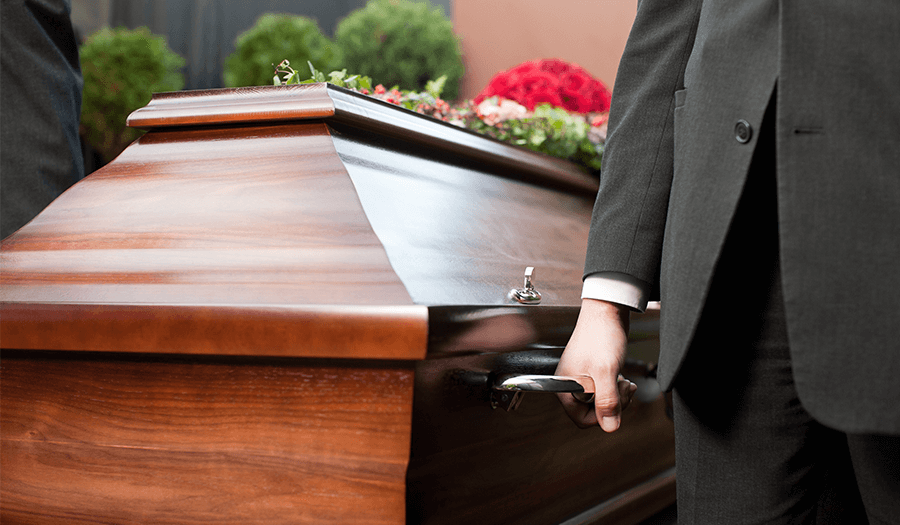What inspires and motivates your team? RBI International Ops Manager Fiona Greenwood knows that despite the tragic situations her very good team encounters every day, there is still huge satisfaction in helping families at their lowest ebb. ‘When I turned from global emergency assistance to global funeral repatriation six years ago, every day brought just as many challenges. After more than 26 years responding to worldwide emergencies, approving air ambulances in the middle of the night, you might be surprised that the transfer to funeral repatriation was equally compelling. In the assistance world, we all know how important it is to connect with our clients, to understand each other, and to respect the protocol of every organisation involved. This is the same ethos which we apply at RBI, never underestimating the importance of looking outward and anticipating change, communicating with the families we serve so they feel connected with someone helpful and knowledgeable when they are in a very dark place; and connecting with our client assistance companies all over the world.‘
At RBI, we build relationships with our clients, providing clear, accurate and personalised advice on all aspects of global funeral repatriation. Communication is crucial, with both the bereaved and the company which appoints us, to ensure that we respect all matters which might affect the situation. From policy limits to faith time limits, we take care to balance family needs and assistance criteria to find a solution and reassure families. We spend 100 per cent of our time researching solutions, and take pride in being both local experts and globally informed. In terms of our strategies now, and what will happen post-Brexit, we know for sure that our service level will remain constant, but until the EU agrees to the terms and conditions, we cannot predict if there could be any customs or administrative changes. Funeral repatriation is traditionally paper-driven, and regulation within the EU has changed little during years of EU membership. We would welcome any move which streamlined or simplified the paperwork between countries, but it is a continuing irony that the countries which are closest to us geographically often need the most paperwork to accompany a deceased on their final journey home.
When we are appointed, we are responding to the family choice around where they want a funeral to take place, which is most often at home. But where is Home? If the deceased was surrounded by their family on a visit to relatives, perhaps a funeral where the tragedy occurred is the best solution. Family could honour the deceased with a prompt funeral, within faith time limits, rather than delay the arrangements with repatriation to another country. Carrying out people’s last wishes can be simple, provided that the all important conversation has taken place sometime in advance, or the wishes have been written down. For someone who never wanted a big funeral, a simple cremation which no one attends, and the ashes scattered afterwards, might be perfect. That was David Bowie’s choice and his family obliged, but matters can be more complicated if family members cannot agree. If the discord continues, a legal ruling may be necessary. In England, there have been situations where parents have gone to court because they cannot agree on a local funeral or a repatriation to another country, and more recently, for a court judgement authorising cryonic preservation when parents could not agree about following their young daughter’s last wishes.
If the cause of death is sudden and completely unexpected, which is so often the case when someone dies away from home, we ‘re often working alongside other organisations and have to respect their protocols. For example, a seaside or swimming pool emergency, where the rescue is too late; a traffic collision, or a climbing accident; we must wait for the host government to release. If there is more than one casualty, the identification process is crucial. We always remind ourselves that, if there are multiple casualties, one error in identification usually means two families are affected. Unlike television portrayals, it takes time to be sure about identification. Visual identification is not reliable, even though families are naturally desperate for news. Sadly we witnessed this heartbreak recently after the Manchester bombing when a young girl was missing, and finally, it was sadly confirmed that she was among the victims and not the survivors.
News of a sudden death is always terrible, but reports of a homicide away from home add yet another dimension. Discussing repatriation or cremation in these circumstances, families have even more questions. What is the impact of a cremation abroad versus coffin repatriation back home? If the opportunity of a post mortem on home soil is their most important consideration, what if there is no insurance and funds are limited? Cremation may then become the only option. Jurisdiction is often an issue, with families expecting that their own police force or government officials can investigate. There is often great disappointment that home authorities cannot intervene in the way they expect. Add to any unusual or tragic circumstances the onslaught of media attention, or a very public display of very personal matters, and emotions can run very high indeed. If local legislation means an inquest is opened, either in resort or at home, families relive the whole situation months or even years later, much like when the media plays footage of a dramatic but fatal event again and again.
Some tragedies abroad are not only sudden and unexpected but are reportedly self-inflicted. Mental health has received high-profile attention recently, including at ITIC Brighton, where travel insurance for mental health patients was discussed. Even before the Royal Princes raised attention by their Heads Together campaign, the RBI team had decided to take specific training to help us when we talk to vulnerable people. Families dealing with grief when a relative has taken their own life may find it difficult to forgive the person who died, and also to live day to day with the judgement of others around what happened and why. Like any situation where there is no insurance, or if cover is declined, families could find themselves in financial turmoil. Many families bear both an emotional but also a financial burden, but those affected by suicide are also perplexed by a situation which has unfolded without any prior warning and left wondering what they could have done to prevent it.
What do families expect will happen when they are making decisions about repatriation? They may have some understanding of the system which applies at home, but this does not always match that of the host government where their loved one died. Our aim is funeral fusion rather than confusion, observing local laws while anticipating others. Best practise is arriving at the funeral destination with all the documents in place, and a gentle reminder to wait before finalising the funeral to allow for local administration or flight delays. It’s possible that the recent British Airways problems delayed not only holidays, weddings and honeymoons, but funerals too.
Managing Director Steve Rowland comments,
‘Working together has always been our aim, across the industry as well as across borders. Business and leisure passengers increasingly expect to access all areas, and unfortunately bereavement away from home is increasingly familiar worldwide. For our Team, winning the ITIC award in 2016 acknowledged a consistent approach, a positive and flexible attitude often in very difficult circumstances, plus reliable costs, all sensitively delivered to support our client and the grieving family. We never underestimate the impact on families who suddenly find themselves in life-changing situations. Our relationship with them is brief, often when the atmosphere is highly charged, with many matters competing for their attention, but they always know where to find us if they need us later. Those families who find the time to write to us, sometimes months later when they find the strength, inspire us to continue building global relationships with insurance and assistance specialists, continue with our operational & bereavement educational days and take our service to the next level across the world.’






